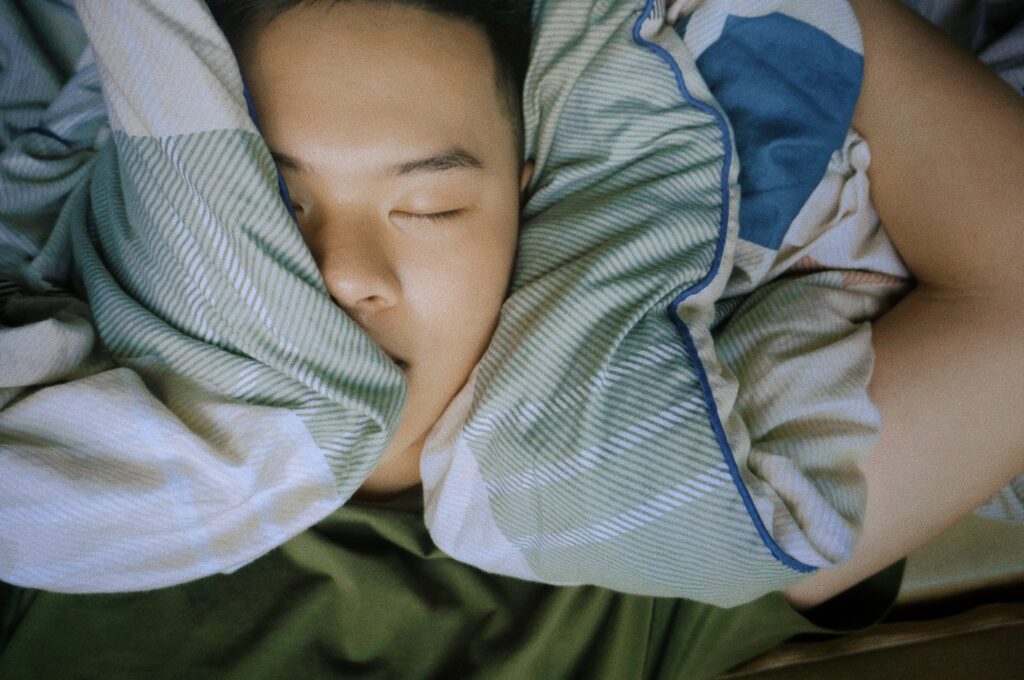Page Contents
One-third of your life is spent sleeping. Sleep is so important because it helps your body to recharge and recuperate, and your cells to repair and regenerate.
Your body cannot keep running like a machine, otherwise it would wear out and breakdown. Sleeping problems can lead you to various health issues, such as low immunity, high blood pressure, diabetes, heart attack, stroke, depression, obesity, and so on.

Statistics
According to the global sleep statistics 2019 conducted by Philips, there were 62% of adults claimed they don’t sleep as well and 44% stated that their sleeping problems have worsened in the past five years. 8 in 10 adults want to improve their sleep quality, but 60% of them have not sought help from a medical professional.
Singaporean are among the world’s worst sleepers, with an average of 6.4 hours of sleep in 2019. This number had shown a slight increase to 7.0 hours in 2020, but dropped to 6.8 hours in 2021. You can read for a more information on the sleep statistics here.
What causes your sleeping problems?
There are 7 factors that can lead you to sleeping problems.- Environment:
- Noise level and brightness: Living in the city area, near train track and highways, near police station, fire station or hospital, near pubs and bars.
- Room temperature and ventilation: Too cold, too warm, stuffy room.
- Hygiene of bed: Bed-bugs and dust-mites can cause allergy and itchness.
- Work or study: Burning mid-night oil during examination, having project deadlines, heavy workload, jet lag, shift work.
- Diet: Taking too much caffeinated foods and beverages, spicy foods, fatty foods, fast foods, alcoholic drinks before sleep.
- Activities before sleep: Performing high-intensity workouts an hour before bedtime.
- Physical and health conditions: Chronic pain and discomfort, disruption of breathing, sinusitis, pre-menstrual syndrome, hunger, bladder problem.
- Mental and emotional conditions: Worries, sadness, fear, stresses, over-excitement, anticipation.
- Medications and substances: Nicotine, antihistamines, beta blockers, alpha blockers, antidepressants.
Sleep-related conditions
Sleep-related conditions are very common. Among which are insomnia, sleep apnoea, Restless Leg Syndrome (RLS), narcolepsy, nocturnal leg cramps, snoring, sleep paralysis, and postprandial somnolence. Let’s look at each of these in more detail.
- Insomnia is difficulty in sleeping, it is usually caused by stress, health conditions, medication, high caffeine intake, or jet lag.
- Sleep apnoea is a condition whereby your breathing stops intermittently during sleep. This could affect your sleep quality and subsequently lead to fatigue, short focus, low productivity, absent-mindedness, poor memory, and irritability.
- Snoring and nasal congestion are usually associated with sleep apnoea. Both conditions disrupt breathing, and these usually happen during cold weather, allergies, enlarged tissues and tonsils, or inflamed tissue lining in the nose (sinusitis).
- Restless Leg Syndrome (RLS) is a condition that causes your limbs to jerk or twitch while asleep. This is usually because of an uncomfortable sleeping position that causes tingling or creeping sensations, also known as paraesthesia.
- Narcolepsy is a brain dysfunction that you experience sudden and excessive daytime drowsiness or sleepiness. This is especially dangerous when you are driving, operating machinery, cooking, or swimming.
- Nocturnal leg cramps are when your calf muscles cramps involuntarily while you sleep. As you may have experienced it, the pain can be so intense that your sleep quality is greatly affected. The causes could be your position, muscle overexertion, electrolytes imbalance, and even cold temperature or weather.
- Sleep paralysis is a condition in which you are mentally conscious but physically paralyzed when you are lying in bed. Ironically, you are consciously aware of what is going on around you, but you cannot respond and react at all.
- Postprandial somnolence, colloquially referred to as food coma, is a state where you feel extremely sleepy after a heavy meal. Several things are causing this, such as meals high in proteins and carbohydrates, reduced blood flow to the brain, reactive hypoglycaemia, and inactivity after a meal.
- Nocturia is the excessive urination at night. This is usually the outcome of the bladder being unable to hold urine while you sleep. Nocturia is more common in older adults, pregnant women, excessive intake of alcohol and coffee (diuretic), taking hypertension medicines, and people with heart and liver failure.
Conclusion
Do not take it lightly when you have sleep-related conditions or disorders as described above. They affect not only your quality of sleep, but prolonged sleep deprivation can lead to Alzheimer’s disease, heart disease, diabetes, suicidality, depression, and anxiety.
Also, if your work or study always require you to stay late at night, you have to deliberately find time to rest whenever possible. If you don’t have enough quality sleep while you are healthy, you will need longer rest times for recovery when you are sick.
In my next blog article, I will discuss more on the treatments for various sleep-related conditions. Stay tuned!
